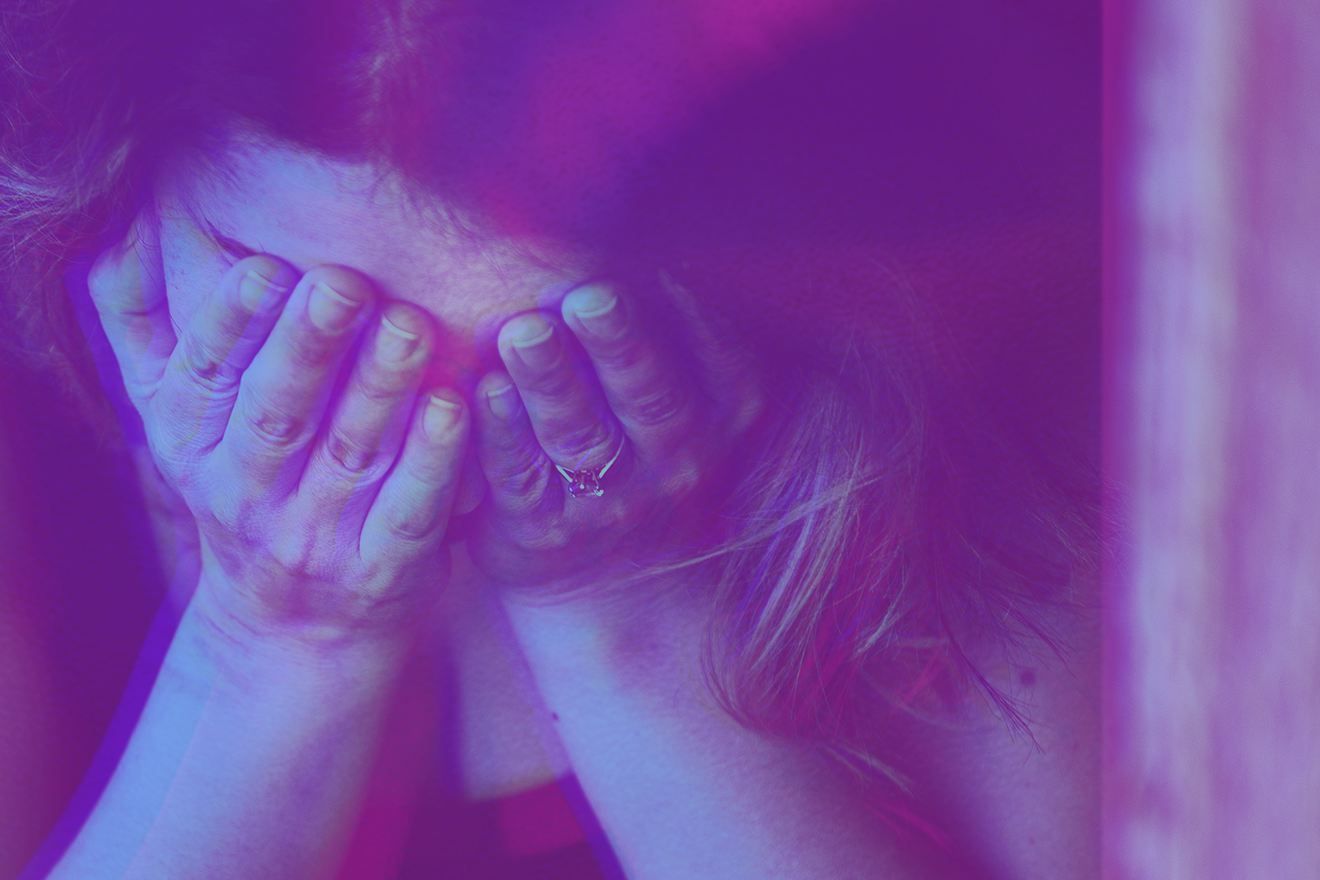Hidden depression is quite common. Across the world, it is estimated that 3.8% of the population or 280 million people suffer from depression. It affects 5% of all adults and 5.7% of adults over the age of 60. Depression is a common illness that is different from the typical emotional responses to the everyday stresses of life.
Depression can become a serious health condition when it occurs frequently, is prolonged, and at moderate or severe intensity. Depression can negatively impact all areas of a person’s life including their work, relationships, family and school.
Without appropriate treatment, depression can continue to worsen and can lead to a person ending their own life. Every year, approximately 700,000 people die from suicide; among those aged 15 to 29 years old, it is the fourth leading cause of death.
Unfortunately, it can be easy for someone to hide their depression because the signs aren’t obvious. The person can seem completely content, happy, smiling and going about their lives as they normally do; however, they can be secretly struggling deeply, mentally, emotionally and physically.
Therefore, it is crucial to understand that the symptoms of depression can vary from person to person. Read on to learn more about how to recognize the hidden signs of depression.
Hidden depression & personality changes
One of the signs someone is suffering from depression is a change in their personality as in they are no longer behaving like their typical selves. If they are usually outgoing but now have become more of a homebody and less interested in socializing, it could mean they are depressed. They may become less talkative and withdrawn.
Another example could be they are normally confident, focused and positive but now have become less hopeful about the future, speak negatively about themselves, show feelings of worthlessness, are unable to focus on tasks and have difficulty making decisions. They may also lack energy and are more tired than usual.
On the contrary, a sign of depression could also be if someone who is usually more laid back suddenly becomes a social butterfly and begins going out excessively; their behavior does not accurately reflect who they truly are.
The depressed individual may also lose interest in hobbies they used to enjoy. If someone you know is starting to give up on their favorite pastime or they’re putting significantly less effort into the things that usually matter to them, they may be struggling with hidden depression.
Significant weight changes
Another sign of depression could be significant weight gain or loss due to changes in appetite and eating habits. They may be overeating as a response to their difficult emotions or have completely lost interest in food and aren’t getting sufficient nutrition in their diet.
A 2016 study explained that the stress hormone cortisol may be responsible for the changes in appetite among those with depression. Specifically, depression can cause people to lose their cravings and no longer want to eat, as food doesn’t taste good to them anymore. On the contrary, for some others, consuming food can increase the feel-good neurotransmitters and cause them to indulge frequently in their cravings.
Follow your Curiosity
Sign up to receive our free psychedelic courses, 45 page eBook, and special offers delivered to your inbox.Sleeping pattern changes
There is a significant association between depression and sleep disorders. In fact, it is estimated that 75% of patients with depression have insomnia symptoms.
If someone is awake during odd hours or sleeping longer than they usually do, they could be struggling with depression. Depression can interfere with sleep, making it difficult to fall asleep, stay asleep, and get up. Sleep issues can leave a person feeling tired, irritable and lacking energy.
Increased drinking
When someone drinks alcohol, their body releases endorphins which are natural pain and stress relievers. Drinking can improve someone’s mood and make them feel better temporarily.
This sign of depression is very hard to recognize because it’s socially acceptable to grab a drink whenever one feels down or stressed. However, if someone is coping with alcohol more often than usual or their drinking has disrupted their daily life and routine, it can mean they are struggling with depression.
According to the Anxiety and Depression Association of America:
“About 20 percent of Americans with an anxiety or mood disorder such as depression have an alcohol or other substance use disorder, and about 20 percent of those with an alcohol or substance use disorder also have an anxiety or mood disorder.”
Sudden emotional and mood shifts and hidden depression
Someone experiencing depression may also show major emotional shifts in mood. For instance, they may suddenly become very irritable, sad, nervous, tense and/or angry. They may have sudden crying spells or panic easily over something they didn’t use to fret over.
There are differences in signs of hidden depression between genders. Men tend to appear more aggressive, irritable and angry and are less likely than women to talk about their feelings. It can even be difficult for doctors to recognize these symptoms in men. Women tend to appear sad and they are more likely than men to express their sadness outwardly.
Overly positive attitude
Hidden depression is often referred to as “smiling depression” which means someone who is experiencing depression masks their pain by smiling and pretending that everything is fine. They may act overly optimistic by always speaking about cheerful things and posting lots of happy and edited photos on social media that hide their truth.
When asked how they are feeling, they tend to want to switch topics immediately because they don’t feel comfortable talking about what’s really going on with them. They may also be in denial about their struggles and change the conversation towards more positive topics.
Oversharing and then dismissing their issues
Another sign that someone is experiencing hidden depression is if they’re sharing very personal and deep thoughts with someone but then taking it back and shutting the conversation down.
For instance, they may talk about how horrible they’ve been feeling and delve into the details of all the bad things that they’ve experienced. However, after doing so, they feel ashamed and uncomfortable about having been so vulnerable with someone that they immediately deny it and do not want to talk about it again.
A sign of depression among adolescents could be that they post a lot of very personal and dark content on their social media but then deletes them quickly.
Tips to support someone suffering from hidden depression
From feelings of guilt, shame or embarrassment, a culture of sweeping issues under the rug, or fear of burdening others, there are many reasons why someone may want to hide their depression.
If you believe a family member, friend or colleague is experiencing depression, you can support them by offering to spend time with them, talking about the changes that you’ve noticed without judgment and asking them what you can do to help them.
There are a variety of treatment options for depression including lifestyle modifications such as diet and physical activity, talk therapy and medication. There is potential research that supports psilocybin therapy for depression. There is also some evidence that shows that microdosing with LSD and psilocybin may be more effective than conventional pharmaceuticals in the treatment of depression.
The Substance Abuse and Mental Health Services Administration (SAMHSA) National Helpline offers free, confidential information services on support, treatment and referrals. Contact them at 800–662-HELP.
Resources
- World Health Organization. Depression Fact Sheet.
- National Institute of Mental Health. Depression.
- Shetty P, Mane A, Fulmali S, Uchit G. Understanding masked depression: A clinical scenario. Indian J Psychiatry. 2018;(60)1:97–102. doi:10.4103/psychiatry.IndianJPsychiatry_272_17
- Simmons WK, Burrows K, Avery JA, et al. Depression-related increases and decreases in appetite reveal dissociable patterns of aberrant activity in reward and interoceptive neurocircuitry. Am J Psychiatry. 2016;173(4):418–428.
- National Institute of Mental Health. Men and depression.
- Nutt D, Wilson S, Paterson L. Sleep disorders as core symptoms of depression. Dialogues Clin Neurosci. 2008;10(3):329–336.
- Anxiety and Depression Association of America. Substance use disorders.
- Radovic A, Gmelin T, Stein BD, Miller E. Depressed adolescents’ positive and negative use of social media. J Adolesc. 2017;55:5–15.
- Pulcu E, Zahn R, Elliott R. The role of self-blaming moral emotions in major depression and their impact on social-economical decision making. Front Psychol. 2013;(4):310. doi:10.3389/fpsyg.2013.00310







